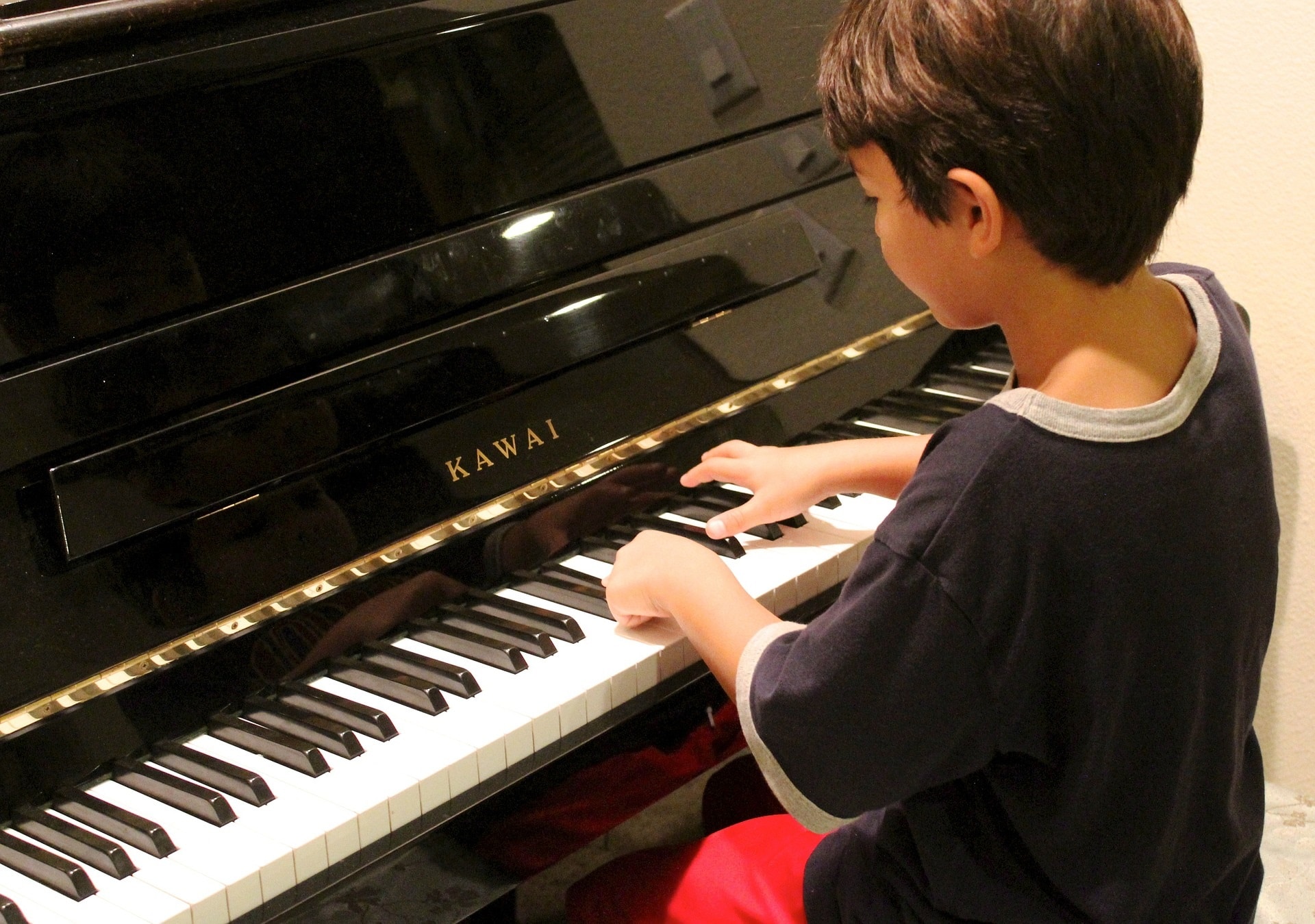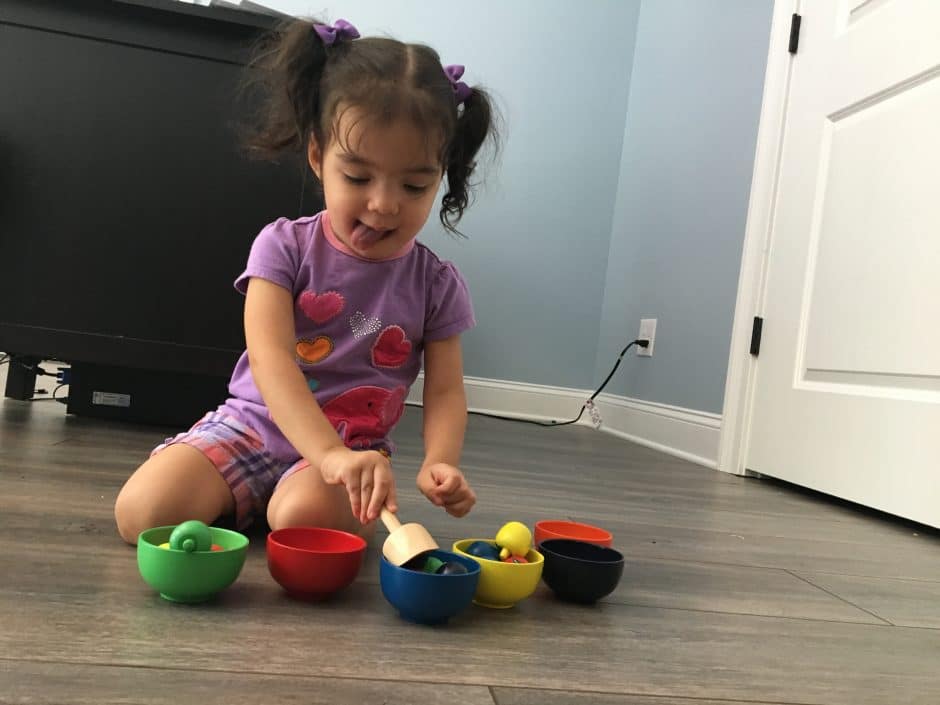How To Raise A Smart Kid
We all want our kid to be “the smart kid.” We want them to have every advantage in life, starting with good health and happiness – and a strong brain and high IQ sure don’t hurt. But how do you help train your child’s brain and keep a smart toddler engaged with everything they’re learning?
Below is a list of helpful tips, offered by the scientific community. There have been and will continue to be countless studies on how to be smart, but so far the consensus is quite simple (as you will see below.) Everything in this list is absolutely doable, to ensure your kid will become the smart kid.
-
If You Want A Smart Kid, Start By Being A Good Example
Young children are natural mimics, and you’re their primary example of good or bad behavior. It will be a while before your little one can determine for themselves what behaviors are good or bad! Make sure to model behaviors you want your child to pick up, like reading, doing creative activities, exercising, or writing, and they will follow suit.
-
Make Sure Your Child Get’s Enough Exercise
Make sure to balance your little one’s studying with plenty of play time. In fact, getting plenty of exercise can help them learn even faster.
Physical activity increases blood flow to the brain, helping it work faster, build new memories, and learn new words at a faster pace. Outdoor activity also helps children build up their spatial reasoning, and when it’s easier for them to understand how different pieces of the world fit together, it’s easier for them to apply that knowledge to just about everything they come across.
-
Make Sure Your Little One Gets Enough Sleep
Getting enough sleep is important to your child’s health, but it’s also important for your child’s brain. A regular, healthy amount of sleep will help your little one learn faster, and improve their grades once they start school. As little as an extra fifteen minutes can make all the difference in keeping your kid’s mind sharp!
-
Watch Their Food, But Not Too Much
You are what you eat, and we all know healthy eating is important to any child’s health, happiness, and brain power, and that it works best when their diet is consistent. But there’s a time and a place for treats, and sugar might actually help increase your child’s attention span while they’re studying, allowing them to focus better and retain more.
Other than the benefit of it helping you raise a smart kid, there are several benefits to having them help with meal preparation:
- Involving your little one in meal preparation can teach them about food and cooking.
- It gives them a head start on measurements and spatial reasoning.
- You get quality time with your child.

-
Focus on Activities And Time WITH Your Child
Even the most educational of children’s TV shows and movies can’t beat engaging your child in an activity. Reinforce the lessons in your little one’s books and activities by having them demonstrate what they’ve learned – it’ll stick in their heads better because our brains evolved to learn by doing!
 Don’t forget to give your little one some time to choose what they’re playing with, since being able to do what they want is just as important to their growth as doing what you think they need to succeed is.
Don’t forget to give your little one some time to choose what they’re playing with, since being able to do what they want is just as important to their growth as doing what you think they need to succeed is.
-
Art Is Important For Little Minds

Visual art and preschool crafts are super important to building your child’s life-skills toolbox. Your little one won’t be on the same skill level as the famous artists, but that’s okay – keeping coloring tools and craft supplies around the house will still help them build confidence, learn about colors, and foster creativity and expression.
-
Give Them Music Lessons
Lots of research has shown that learning to sing or play an instrument helps make your kids smarter, improving their scores on all sorts of tests and helping them retain information. The knock-on effect can last their whole lives, because music has been associated with slowing age-related brain problems. Music is a major key to raising a little genius.
-
Encourage Your Child To Understand Their Place In The World
It’s never too early to teach your little one that the world is so much bigger than your neighborhood. Maps, museums, and multicultural events are a great start to building your child’s awareness of the world around them, and as they get older, you can fold in talking to them about the news and what’s going on right now.
In addition, young children are much, much better able to learn a second language than even teenagers; the language centers of their brains can take on information much more easily. If your child is interested, sign them up for language classes – you may be surprised how quickly they grasp it! If you’re already a bilingual home, your child will pick up both languages around them as easy as breathing.
-
Read With Your Kids – Not To Your Kids
Reading a bedtime story is a time-honored family tradition, but instead of reading the book aloud to your child, make sure they can see the words in the book and read it with them. This simple step will help your little one learn to read faster than just looking at the pictures and hearing the words, and we all know how important reading is to raising a smart child.
As your little one grows, let them start picking out books that catch their interest; they’ll be much more engaged in the story if they’re allowed to find one that holds their attention. And at every age, talk to your child about the book itself. Small children can tell you what they see in a book’s pictures, while older kids can start talking about what they think of the story and characters.
-
Build Good Habits For Your Smart Kid
A high IQ is all well and good, but it may mean nothing for your child if they don’t have a strong work ethic. Studies have shown that being able to buckle down and get to work has much, much more to do with academic success than natural smarts. Therefore, teach your little one good study and work habits from an early age. The sooner they start, the more likely it is to stick, and the better off they’ll be.
-
Connect With Your Kids
Just talking to your child will help them a great deal – if you ask the right questions about daily activities, they’ll start thinking about why they like or dislike certain things, which will give them a leg up on explaining these things in a wider social or academic environment. On top of that, it’s a good way to bond with your kid, and any smart child needs that encouragement and support.
This can also be used to help you stay aware of how long your child spends watching TV, or whether they’re too attached to social media or on the verge of stumbling into the nastier corners of the internet. Monitoring your child’s time in front of a screen of all sorts will help them learn responsible TV and computer habits.
-
Happy Children Grow Up To Be Successful Adults
According to Christine Carter![]() , author of Raising Happiness,
, author of Raising Happiness,![]() “happiness is a tremendous advantage in a world that emphasizes performance. On average, happy people are more successful than unhappy people at both work and love. They get better performance reviews, have more prestigious jobs, and earn higher salaries. They are more likely to get married, and once married, they are more satisfied with their marriage.” By raising happy kids, you are raising them with a clear advantage.
“happiness is a tremendous advantage in a world that emphasizes performance. On average, happy people are more successful than unhappy people at both work and love. They get better performance reviews, have more prestigious jobs, and earn higher salaries. They are more likely to get married, and once married, they are more satisfied with their marriage.” By raising happy kids, you are raising them with a clear advantage.
So how do you raise happy children? The first step is to ensure that you are a happy parent. Secondly – allow your children to play and have fun. Pediatricians and educational experts all agree that playing is essential because children learn through play. However, you can manipulate their “fun” and “playtime” by making the toys you offer them, educational![]() .
.
One significant advantage that educational toys offer is that they can be equally as fun as non-educational toys – they can be just as colorful and interactive. However, kids are actually learning while they’re playing. It’s like killing two birds with one stone, or having your cake and eating it, too.
-
Believe in Your Child
This might sound obvious at first, but the best support any kid can ask for is their parent’s love and confidence. If you believe your child can succeed, they’re more likely to believe they can succeed. On the other hand, if you get down on them for not doing enough, they’re more likely to give up before they start. If you want to raise a little genius, believe that they’re capable of being one, and half the work is already done.
However, it’s just as important not to constantly tell your child they’re smart. That can reinforce the idea that intelligence doesn’t actually require any work on their part, and then they might give up – and no parent wants to see that! Focus on rewarding hard work, helping them cope with failures, and finding a new approach to something they’re struggling with.
Remember that not everyone learns the same way. Your child might be a natural learner from reading books, or they might need to try doing something for themselves to fully understand it, or they might need to see pictures rather than words. Smart children come in all shapes, sizes, and learning capacities – don’t get discouraged if you don’t find their best learning style right away.
-
Watch Who Your Smart Kid Hangs Out With – Peer Groups Matter
According to a study of Dartmouth College students, economist Bruce Sacerdote found that “when students with low grade-point averages simply began rooming with higher-scoring students, their grade-point averages increased.” The study concludes that students “appeared to infect each other with good and bad study habits—such that a roommate with a high grade-point average would drag upward the G.P.A. of his lower-scoring roommate.” [This can be found in the book – The Happiness Advantage: The Seven Principles of Positive Psychology That Fuel Success and Performance at Work.]
If you apply this theory to little children or even adults, peer groups do matter. As a parent, you’ll want to make sure your kids are hanging out with other kids who are worthy of being copied.
Note From The Author
As I introduced this post, I said that all the tips are absolutely doable. While that is true, the list may nonetheless feel overwhelming – especially if you are a busy parent.
As a mother of 5, I do recommend starting small and forming good habits. Once you have one habit in place, you can start with another, and then another. Trying to implement it all at the same time will feel overwhelming, and if you are a normal person like me, you will probably fail. As such, I do recommend taking it step by step.![]()
















